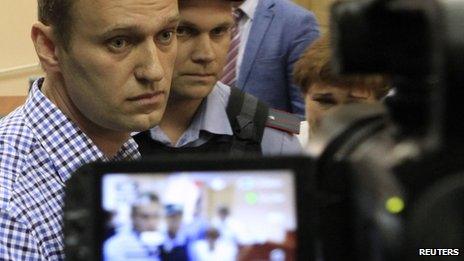Kremlin critic Alexei Navalny freed on bail
- Published
Alexei Navalny: "If we have at least a couple of extra months to fight, we will fight"
Kremlin critic Alexei Navalny has been freed from jail pending an appeal, a day after being sentenced to five years for embezzlement.
The court said being in custody would strip him of his right to stand in the Moscow mayor elections in September.
Navalny's supporters said the decision to convict him was political.
A spokesman for President Putin, Dmitry Peskov, has warned activists against trying to hold any more pro-Navalny marches without official approval.
Mr Peskov's remarks represent the first reaction by the Kremlin to the release of Navalny - a vocal critic of Vladimir Putin.
The president could not discuss court cases, the spokesman added. Navalny's supporters had staged a number of unsanctioned rallies and must not break the law, he said.
The elections in Moscow are on 8 September and - for now at least - he is being allowed to campaign, says the BBC's Daniel Sandford.
Travel restrictions
On Thursday, Navalny was found guilty of heading a group that embezzled timber worth 16m roubles ($500,000; £330,000) from the Kirovles state timber company while working as an adviser to Kirov's governor Nikita Belykh.
At the end of a three-hour verdict reading, he was sentenced to five years in jail.
But on Friday, the Kirov regional court took just over an hour to hear the bail case and make its decision.
The three judges decided that, as Navalny had not breached his bail conditions during the trial, he should allowed to await the appeal decision at home in Moscow.
Navalny and his co-accused Pyotr Ofitserov were immediately released, and Navalny embraced his wife Yulia.
"I am very grateful to all the people who supported us, all the people who went to [protest on Moscow's] Manezh Square and other squares," he said.
It was not just the defence pleading Navalny's case. In an unexpected move, prosecutors also pushed for him to remain free, with travel restrictions, pending his appeal.
Analysts said this could be an attempt by officials to soothe public anger over the case.
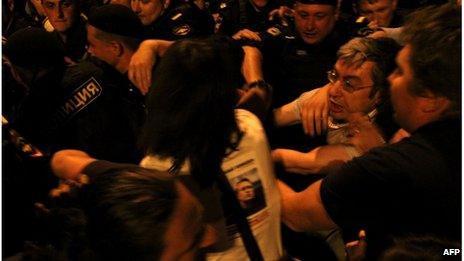
Scuffles broke out on the streets of Moscow after the verdict
After the verdict on Thursday there were violent scuffles, as thousands of people took to the streets in Moscow, St Petersburg and other cities in protests that continued late into the evening. Reports said dozens were detained by police.
Other countries questioned the fairness of the verdict, with the EU saying it posed "serious questions" about the rule of law in Russia, while the US said it was "deeply disappointed".
A spokesman for German Chancellor Angela Merkel said the trial had "raised doubts about whether criminal justice was the main motive".
The Kremlin denies that Mr Putin uses courts for political ends, and the judge rejected Navalny's claim that the trial was politically motivated.
Navalny, 37, is a leading campaigner against President Putin's United Russia party and has regularly blogged about corruption allegations.
He came to public attention when he inspired mass protests against the Kremlin and President Putin in December 2011.
Before he was led away to jail on Thursday, Navalny urged his supporters to continue his anti-corruption struggle, tweeting: "Don't sit around doing nothing."
- Published19 July 2013
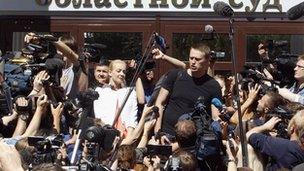
- Published19 July 2013
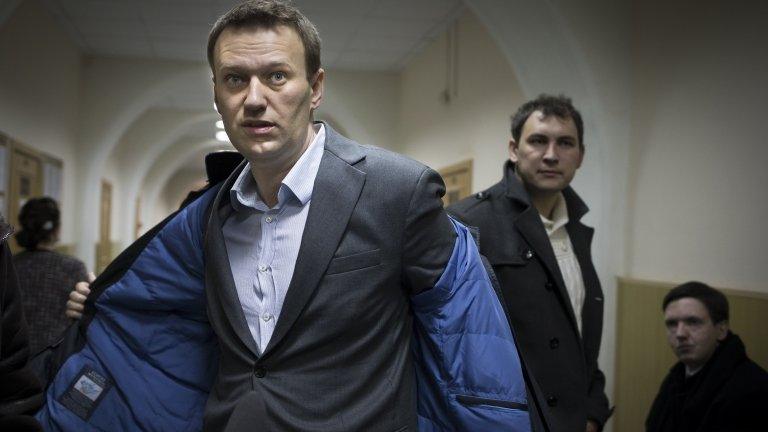
- Published18 July 2013
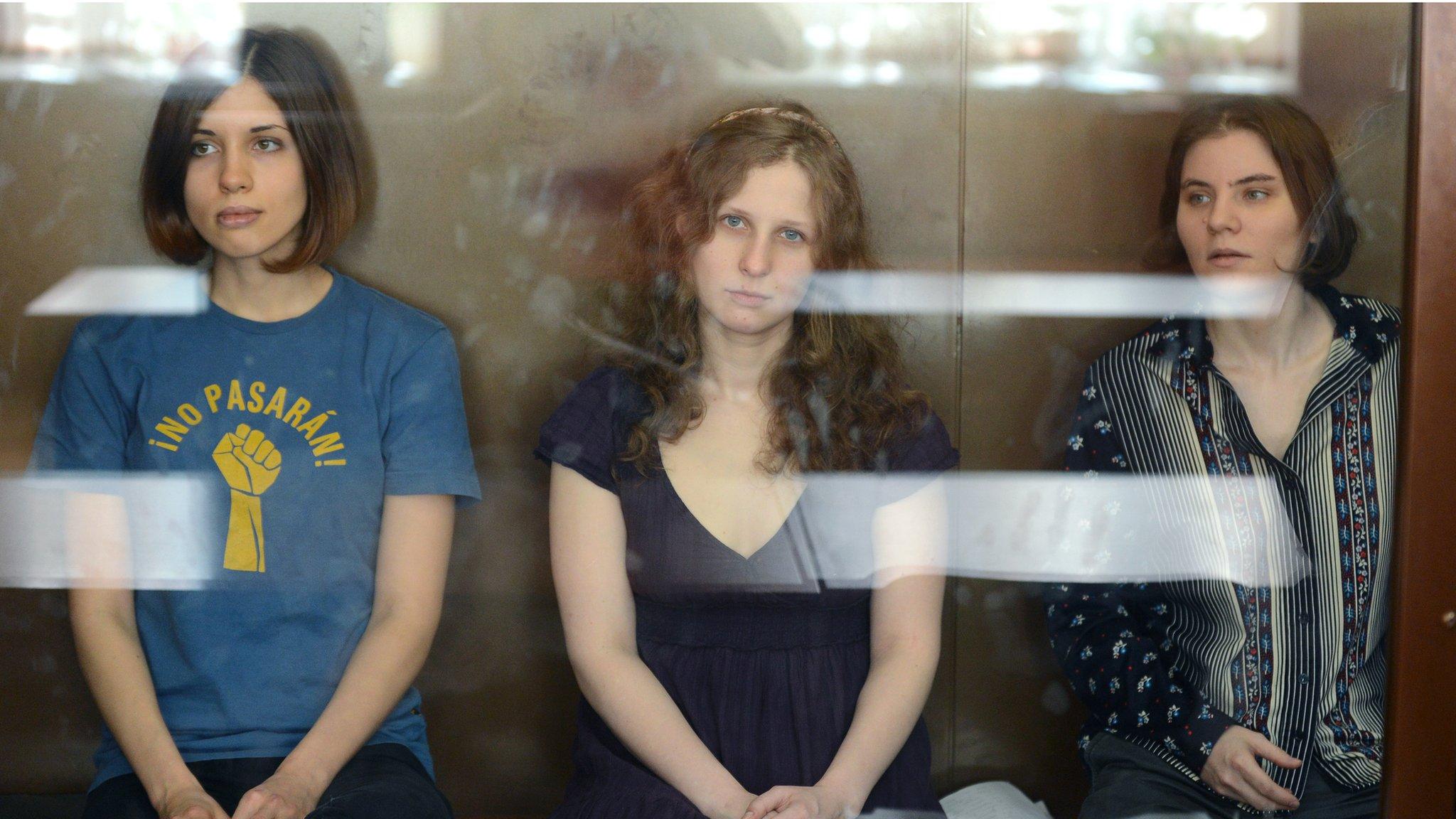
- Published16 February 2024
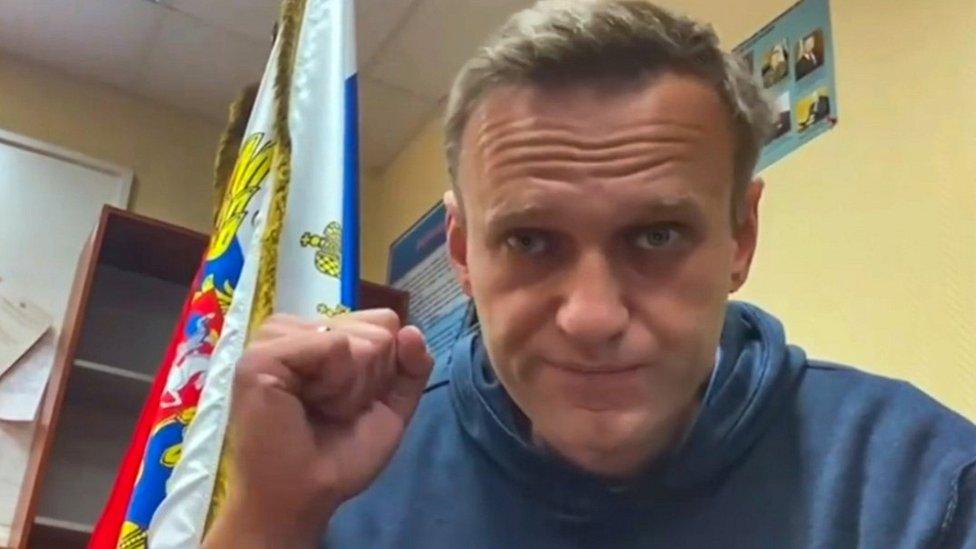
- Published18 July 2013
